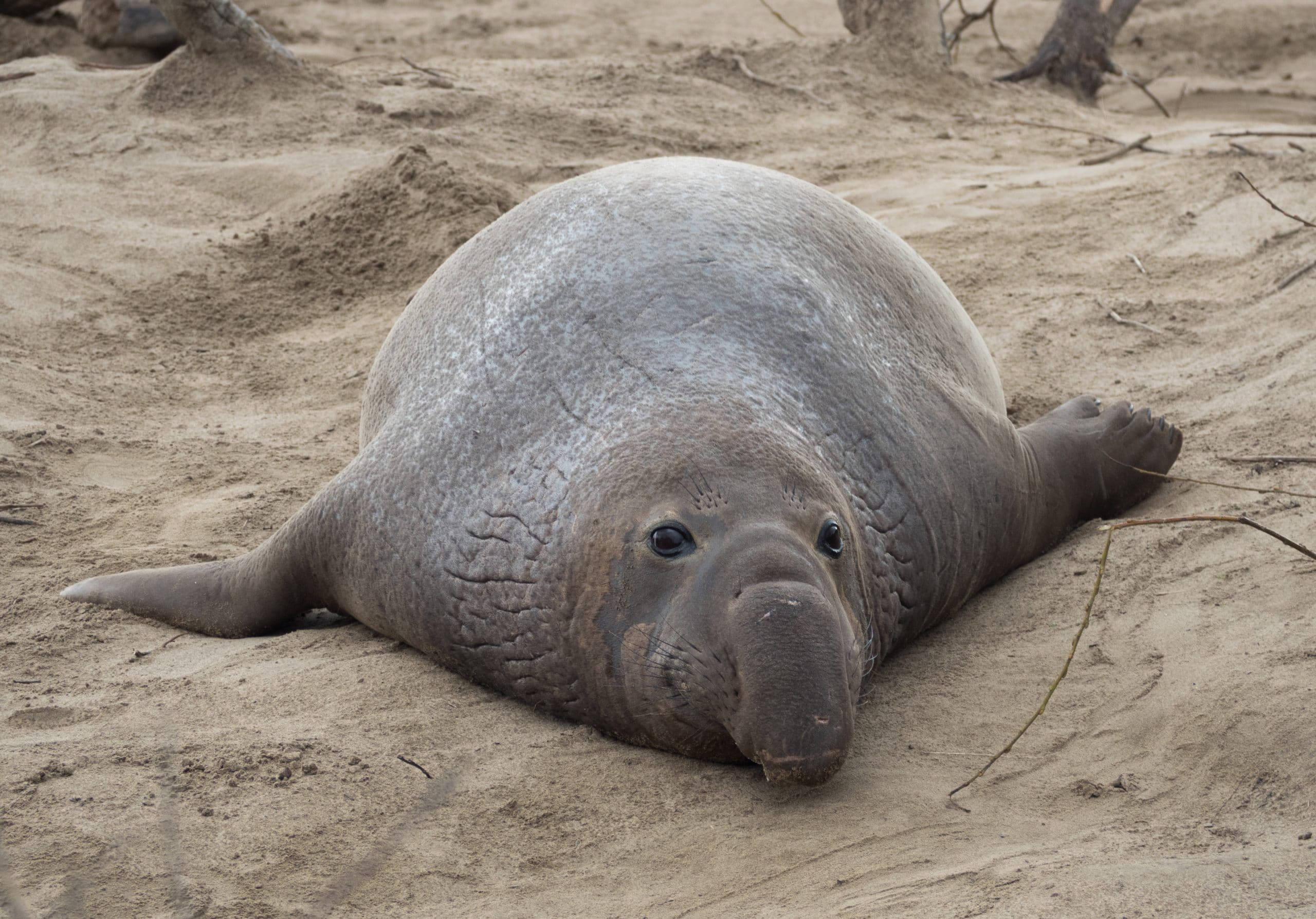This latest findings adds to research conducted on captive seals. Source: George Hodan, Public Domain Pictures.net.
Through extensive research, scientists have discovered that seals enlist the help of their whiskers to help them find food in the dark depths of the ocean.
Known to deep dive for their food and for their whisker sensitivity, female elephant seals were the test subject of choice. Getting evidence for research required experts to place small video loggers on either side of their cheeks, the best position for recording movements of the whiskers.
As the seals dove down into deep parts of the ocean, researchers were able to examine the whiskers with a small infrared light (unnoticeable to the animal) and observed how they were used when approaching prey. From this, came a breakthrough that showed seals use their whiskers to sense the water movement of their food.
“With their whiskers extended forward ahead of their mouth, the seals performed rhythmic whisker movement—protracting and retracting their whiskers—to search for hydrodynamic cues, similar to the ways a terrestrial mammal explores its environment,” said the published study.

It’s a theory that’s been hypothesized for years, according to University of California project researcher Taiki Adachi.
“Our findings solve a decades-long mystery about how deep-diving seals locate their prey without the biosonar used by whales, revealing another mammalian adaptation to complete darkness.”
He added that the research team can go on to study animals with similar capabilities.
“This research complements earlier whisker studies conducted on mammals in captive conditions, and it propels forward the field of sensory ecology of foraging.
“The next step is conducting comparative field studies on other mammals to better understand how whisker-sensing shapes natural behaviour in each mammalian species under different environments.”
Research was carried out by several experts from the University of California, The University of Tokyo as well as the University of Exeter.





